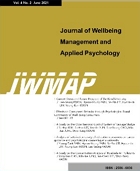 E-ISSN : 2586-6036
E-ISSN : 2586-6036
Ae-Hee HA
Abstract
Purpose: This study aims to analyze the status and realities of mental health counseling experiences among adults using the 2022 National Health and Nutrition Examination Survey(NHNES) data. The goal is to provide policy recommendations for enhancing mental health services. Research Methods: Utilizing secondary data analysis of the 2022 survey conducted by the Korea Disease Control and Prevention Agency(KDCPA), this study applied statistical techniques including descriptive statistics, chi-square tests, and logistic regression to evaluate counseling experiences based on age, gender, residential area, and income levels. Results: The study included 5,256 participants, with the highest proportion being those aged 60-69 (21.3%) and the lowest aged 19-29 (11.7%). Females constituted 56.5% of the sample, while males made up 43.5%. Older adults (60-69 and 70+) had significantly lower counseling experience rates compared to younger adults (19-29). Females had higher counseling experience rates than males, indicating gender differences in mental health service utilization. Urban residents had higher counseling experience rates than rural residents, suggesting better access to mental health services in urban areas. Lower income levels were associated with higher counseling experience rates, highlighting the need for targeted mental health support for economically disadvantaged groups. Conclusions: The study recommends developing age-specific, gender-sensitive, and regionally tailored mental health programs to improve accessibility and effectiveness. Additionally, policies should focus on enhancing mental health support for low-income individuals to address the socioeconomic disparities in mental health service utilization.
- keywords
- Mental Health, Counseling Experiences, Demographic Factors, Health Policy, Socioeconomic Disparities
- Downloaded
- Viewed
- 0KCI Citations
- 0WOS Citations














